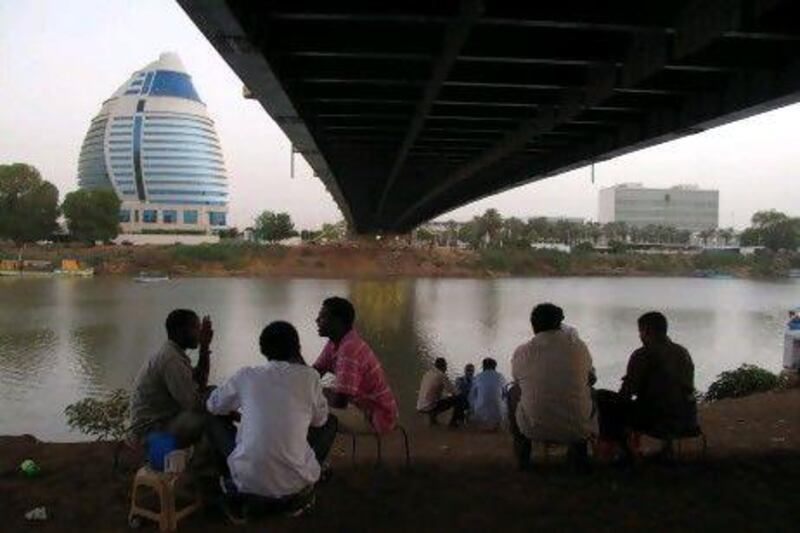KHARTOUM // In the centre of Khartoum, overlooking the Nile, stands the Burj Al-Fateh, a luxury hotel that looks like a bloated version of Dubai's sail-shaped Burj Al Arab.
The property is owned by Libya and managed by Corinthia Hotels, in which Libya's sovereign wealth fund has a major stake and Dubai's Istithmar World is also a shareholder.
This is not Sudan's only link to the UAE, however. After the 2005 peace agreement in Sudan, investors from the UAE flocked to the country, while the US and much of the international community shunned it because of the bloodshed in Darfur and suspected links to terrorism. Now, after the independence of South Sudan, Khartoum is turning to the UAE and other Arab states for additional investment to generate revenue as it stands to lose much of its vital oil economy to South Sudan.
"The investment is increasing," said Mohammed Elhadi Abubakr, the secretary general of Khartoum's investment board.
"We are promoting for investment in the UAE. A month ago we were in Sharjah. After that we received a lot of investors from there asking for opportunities. We are focusing on this."
Sudan is focusing mainly on industry, mining and agriculture, Mr Abubakr said. The country is rich in natural resources, with gold mining increasing rapidly.
Sudan is also turning its attention to sugar production.
The UAE has acquired significant quantities of land in Sudan as part of the emirate's food security efforts. The UAE's Zayed farm project in Gezira is an important job creator for Sudan, as are the other UAE ventures in Sudan, Mr Abubakr said.
The UAE has a strong presence in Khartoum's hotel industry. Abu Dhabi's Rotana Hotels launched the city's first five-star hotel in 2007.
The Dubai company Coral Hotels & Resorts manages one of the city's few upmarket hotels, the Coral Khartoum.
Ahmed Shavoir, the ambassadorfor Sudan's higher council of investment, listed UAE investments in Sudan including Canar, Bank of Khartoum and Al Salam Bank.
Etisalat has an 82 per cent stake in Canar, the Sudanese fixed-line telecommunications company. Dubai Islamic Bank acquired a 60 per cent stake in the Bank of Khartoum in 2005.
The UAE has also helped to fund infrastructure projects including roads and dams.
Last year, foreign trade between the UAE and Sudan increased to US$1.8 billion (Dh6.61bn) from $1.1bn in 2009, according to Sudan's embassy in Abu Dhabi. In 2009, trade grew by 57 per cent on the previous year, a report by the UAE Ministry of Foreign Trade shows.
"The UAE is considered the third partner after China and Japan in terms of Sudanese non-oil exports to the world, with a percentage of 2.4 per cent of its total non-oil exports," says the report, which was published last year.
These exports include gold and fruit and vegetables.
Mr Abubakr said Sudan was also receiving strong flows of investment from Saudi Arabia, Kuwait, Qatar and Egypt.





